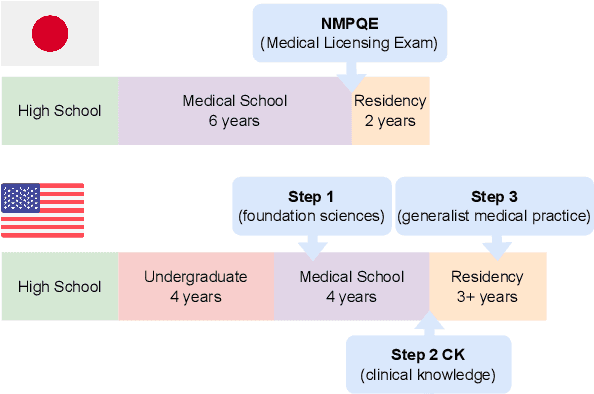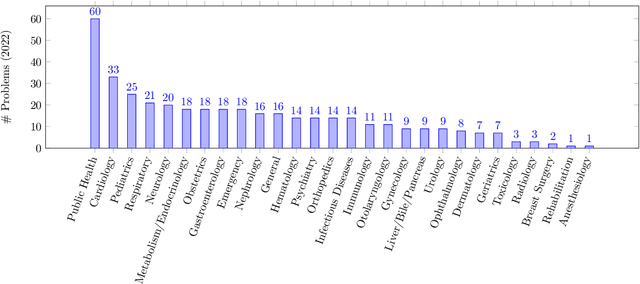Yuhei Kasai
Evaluating GPT-4 and ChatGPT on Japanese Medical Licensing Examinations
Apr 05, 2023



Abstract:As large language models (LLMs) gain popularity among speakers of diverse languages, we believe that it is crucial to benchmark them to better understand model behaviors, failures, and limitations in languages beyond English. In this work, we evaluate LLM APIs (ChatGPT, GPT-3, and GPT-4) on the Japanese national medical licensing examinations from the past five years, including the current year. Our team comprises native Japanese-speaking NLP researchers and a practicing cardiologist based in Japan. Our experiments show that GPT-4 outperforms ChatGPT and GPT-3 and passes all six years of the exams, highlighting LLMs' potential in a language that is typologically distant from English. However, our evaluation also exposes critical limitations of the current LLM APIs. First, LLMs sometimes select prohibited choices that should be strictly avoided in medical practice in Japan, such as suggesting euthanasia. Further, our analysis shows that the API costs are generally higher and the maximum context size is smaller for Japanese because of the way non-Latin scripts are currently tokenized in the pipeline. We release our benchmark as Igaku QA as well as all model outputs and exam metadata. We hope that our results and benchmark will spur progress on more diverse applications of LLMs. Our benchmark is available at https://github.com/jungokasai/IgakuQA.
 Add to Chrome
Add to Chrome Add to Firefox
Add to Firefox Add to Edge
Add to Edge